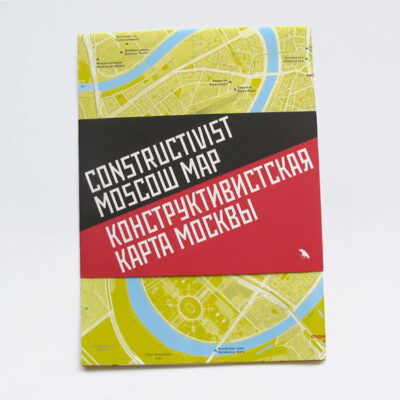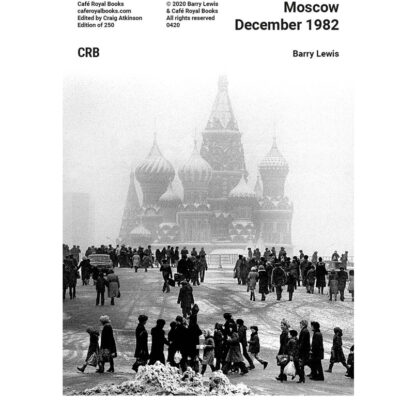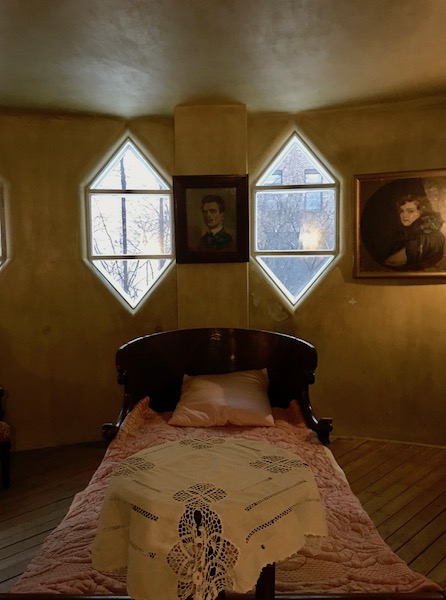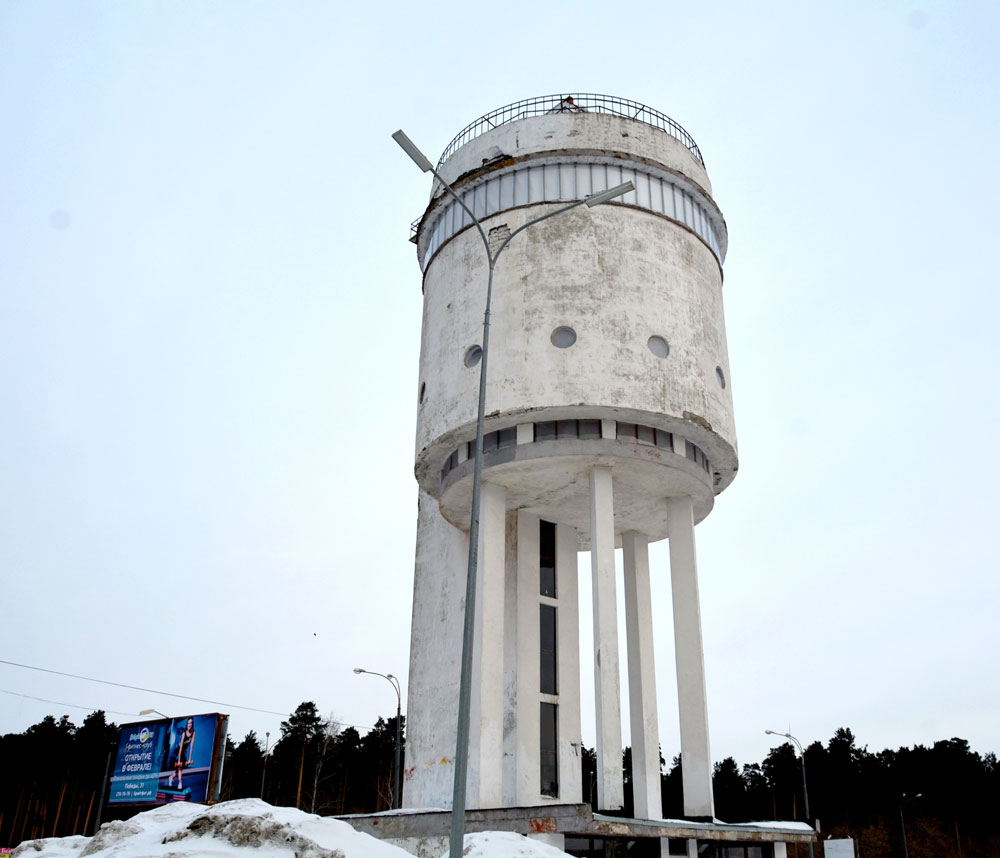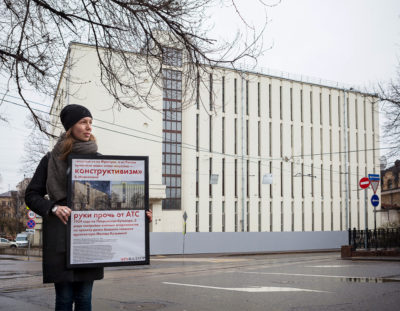52 Stitches
Combining a fascination for Russian avant-garde architecture and a love of embroidery, Sasha Braulov recreates the monumental forms of constructivist buildings in traditional needlework techniques
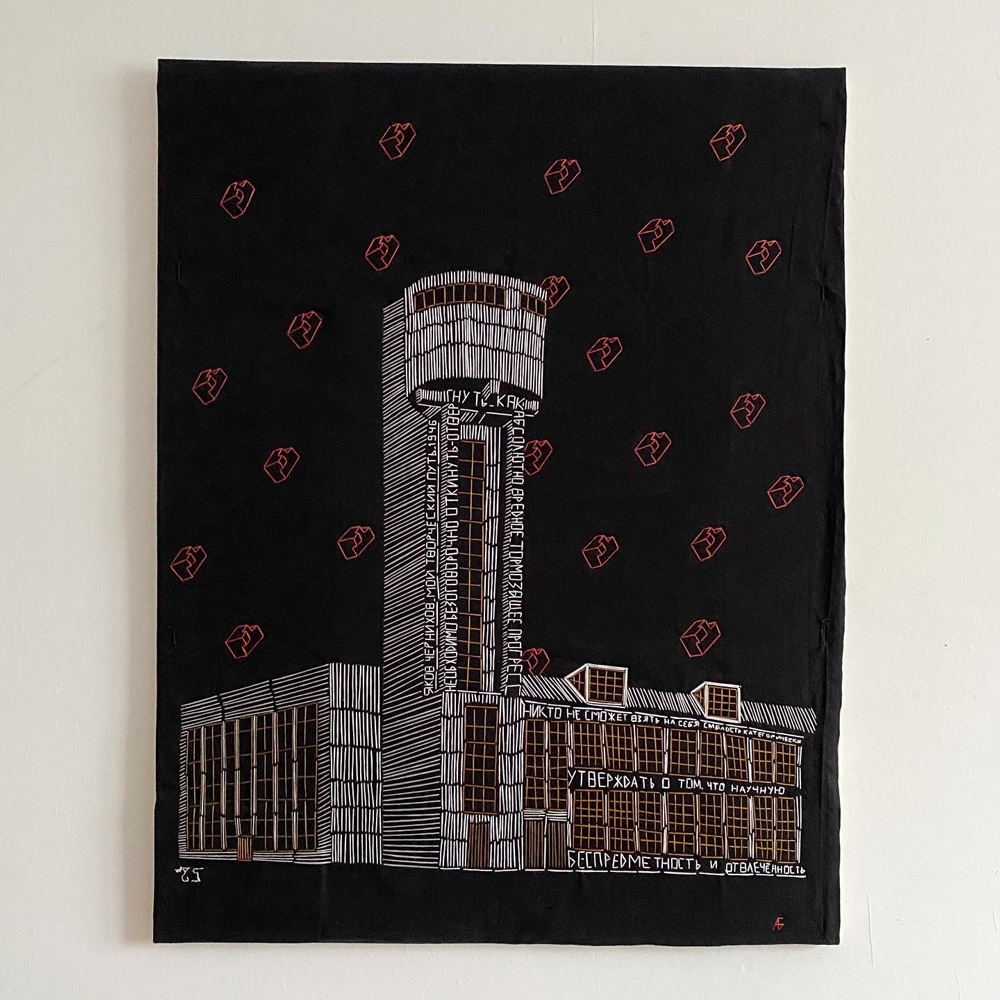
The Tower of the ‘Krasny Gvozdilshik’ (‘Red Nailer’) Ya.Chernikhov. 1930-1931. Saint-Petersburg
Sasha honed his skills as an embroiderer as a small child in Leningrad. It was a kindergarten staple to learn the skill. Emroidery calls for patience and calm but around Sasha everything was imploding as the state and the system came to an end. This was bound to have an impact.
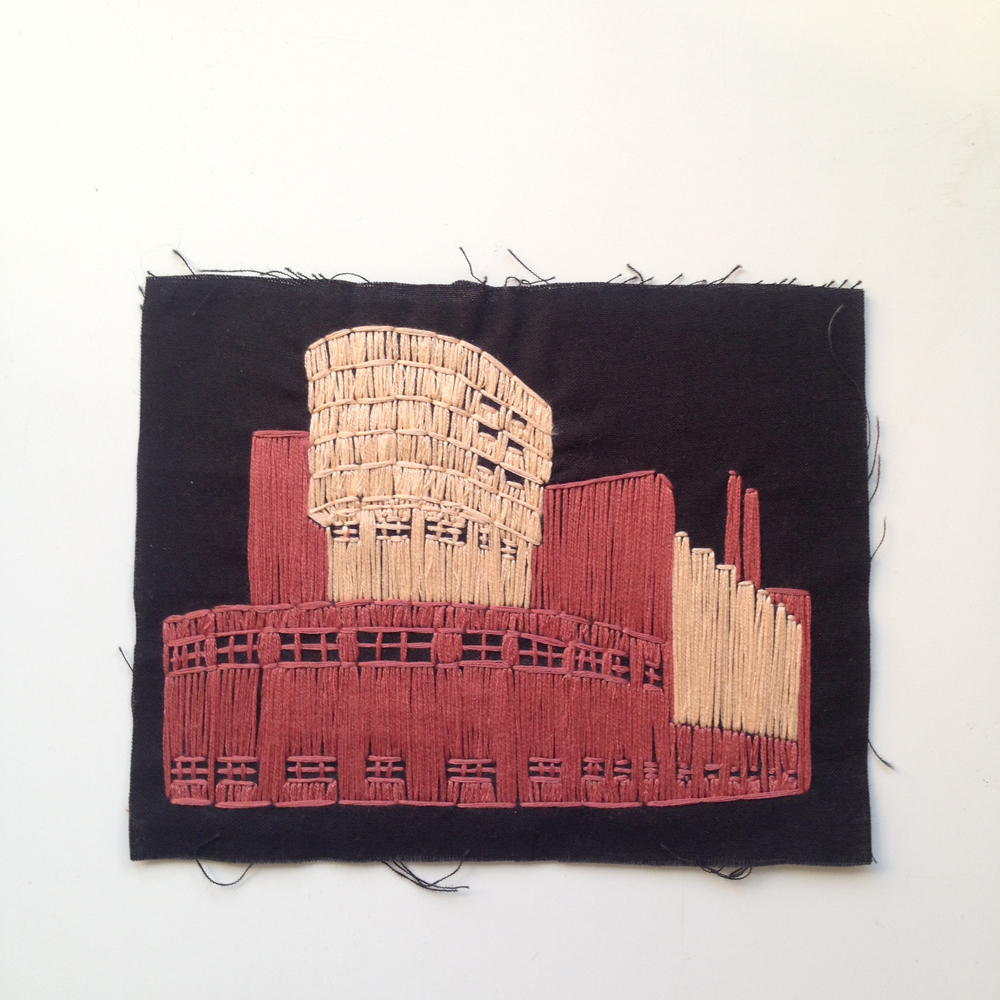
Red Flag Textile Factory, by Erich Mendelsohn. 1926. Saint-Petersburg.
Wind forward to 2015, together with his wife Nastya Kopteva, Sasha founded 52Factory.
‘Its mission is to give a tangible form to lost, collapsing and unrealized architecture and to draw attention to the problem of the disappearance of unique buildings of an era of innovation and experimentation’.
52Factory has been designing a range of objects referencing that period and scored a big hit with their City Perpetual Calendar, a staple in the MoMa Store in New York. However, Sasha was looking for a different expression and returned to embroidery four years ago building a bridge between architecture and the decorative arts.
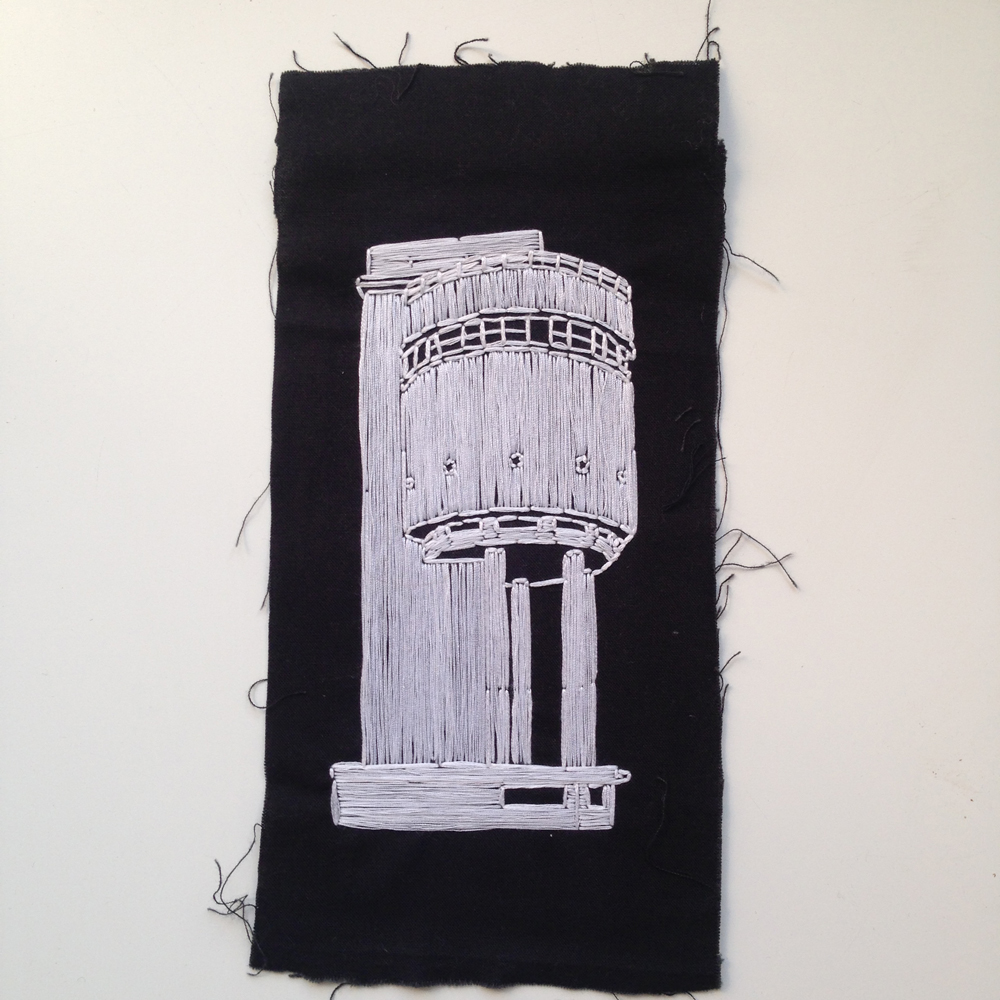
The White Tower, by M. Reicher. 1929. Yekaterinburg
He explains,
‘I have been embroidering both famous and little-known projects from the 1920s and 1930s. The objects are geographically scattered throughout the former USSR – from Minsk to Khabarovsk and from Murmansk to Tashkent. Some of them were demolished or significantly rebuilt, and some remained at the design stage’.
It seems that embroidery as an art form is evolving; once the sole domain of women, today, Sasha explains ‘more and more men are interested in this craft’.
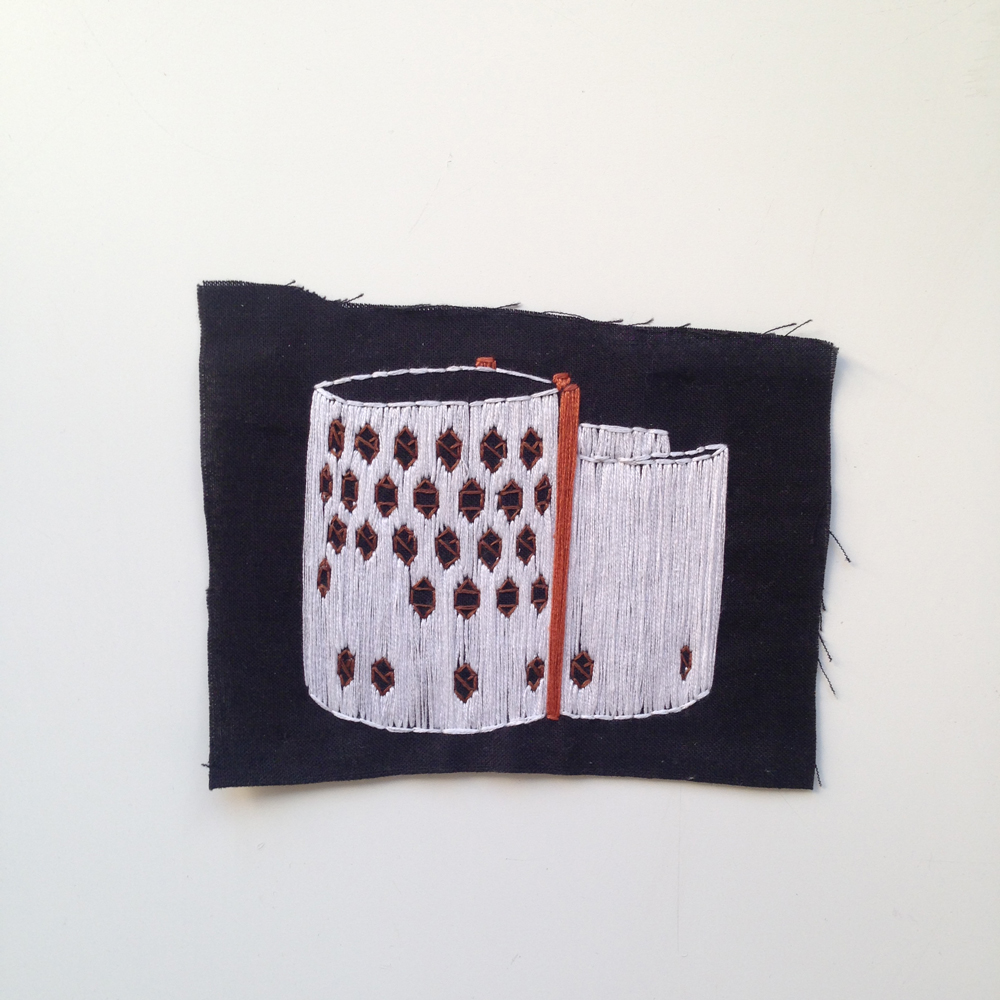
Melnikov’s own residence, by Konstantin Melnikov. 1927-1929ss. Moscow.
Each embroidery (and there are more than 230) takes up to two weeks to complete. What’s so fascinating is the way that they are referencing the urban landscape in an entirely new way. They bring together Russia’s rich history of embroidery and apply it to 20th Century architecture.
For Sasha, the architecture of the avant-garde is an ‘inexhaustible source of inspiration’ ,
‘I’m still fascinated by the flight of ideas and the emotional uplift with which people of that time created amazing projects that still cannot be built because the technology is not yet at a sufficient level of development. And all this was created in very difficult times, the Russian empire had collapsed, the First World War recently ended, there was a civil war in the country, there was a famine… It’s amazing’.
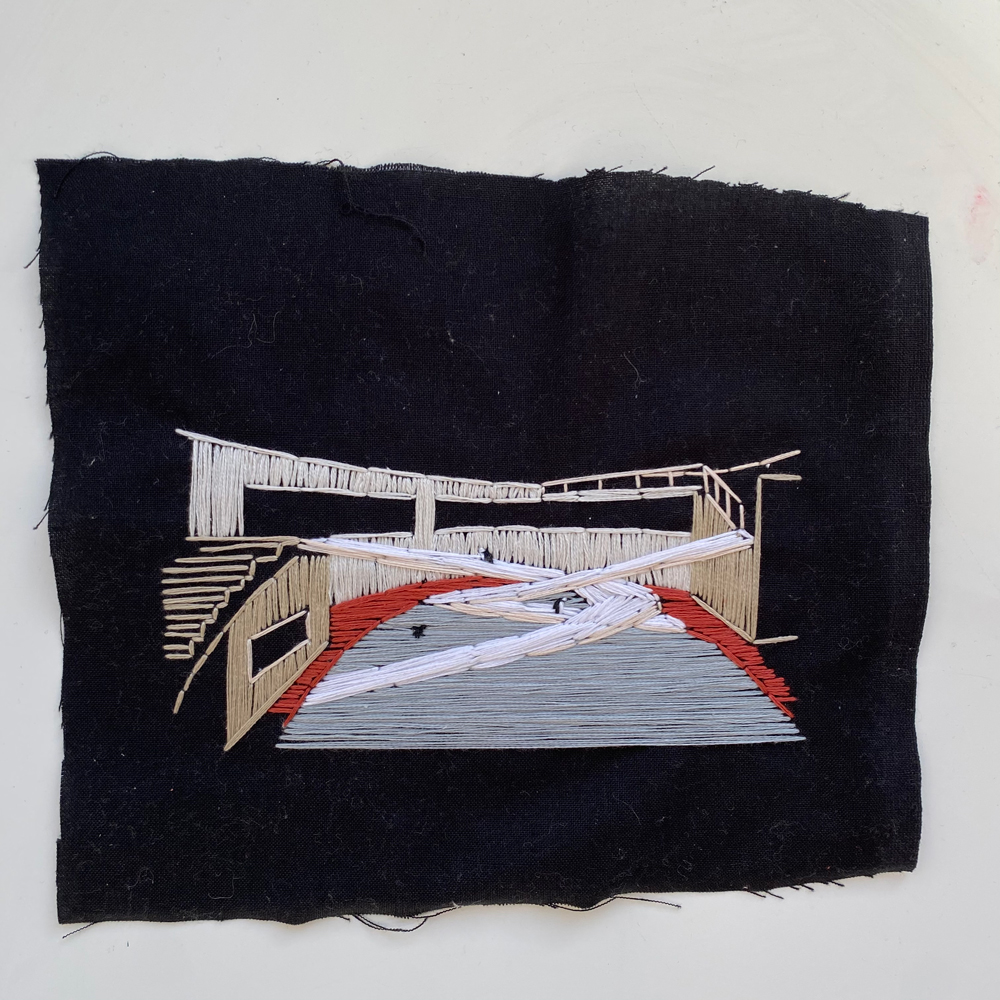
Sasha shares, ‘I really love the architecture of that era and I want more people to become interested in it. Unfortunately, these unique architectural monuments are often demolished in Russia, which makes me very sad. Perhaps this project will help change the situation, at least a little. As to people, Sasha has embroidery works documenting their lives, too.
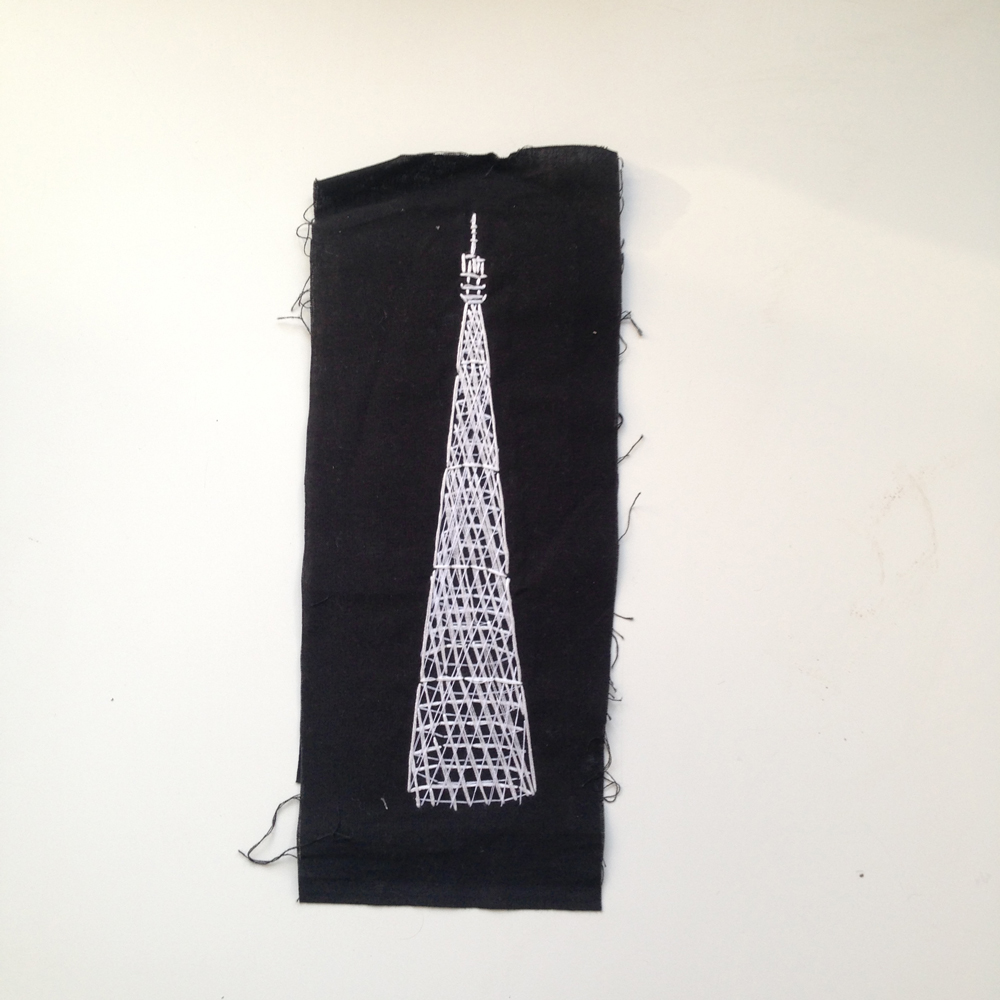
Shukhov Radio Tower Moscow
Stitching it all together with Greyscape
We asked Sasha
Your home City Saint-Petersburg (Leningrad)
Is there a particular architect whose work you are particularly interested in?
This is a very difficult question. Because I have a lot of them and the list keeps growing: K.S.Melnikov, the Vesnin brothers, Ya.Chernikhov, O.A.Vutke, A.Nikolsky, N.Trotsky, M.Ginzburg… N.F.Demkov and Ivan Leonidov stand apart. The first one created several projects in my native St. Petersburg (Leningrad). Since the mid-1930s, when the avant-garde began to criticize the authorities, he completely stopped doing architecture. During the siege of Leningrad (1941), he died of starvation. A very tragic life.
None of Ivan Leonidov’s projects were implemented. But he gave such a powerful impetus to the development of architecture in general that modern architects and designers are still inspired by his works.
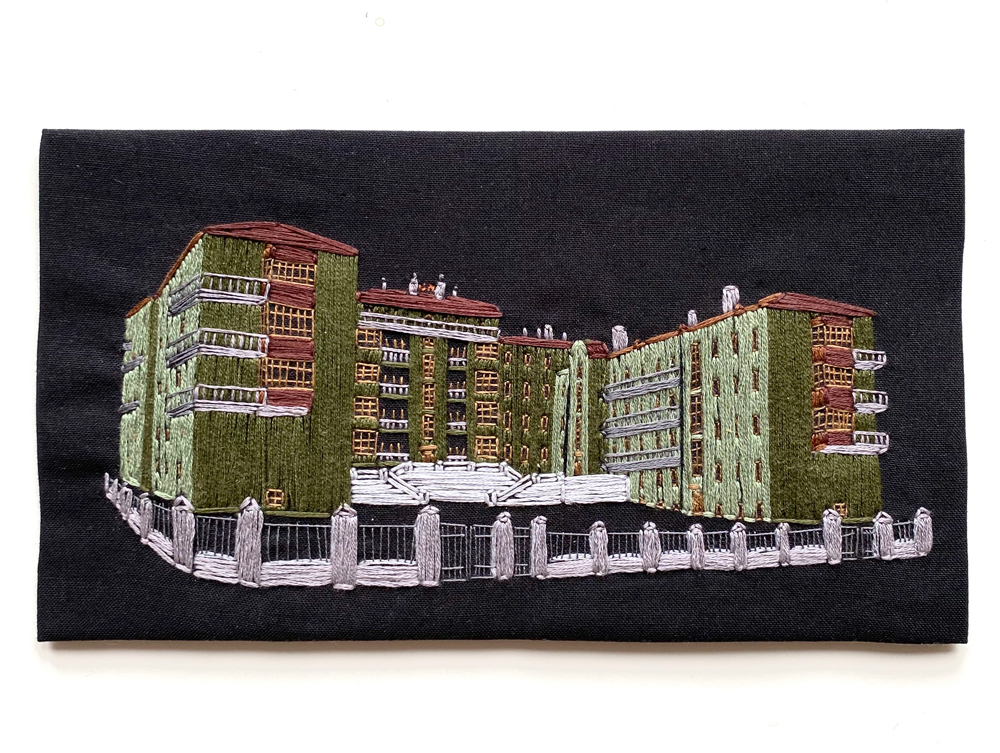
The Mergasovsky’s House, by P.T. Speransky, S.V. Glagolev. 1928. Kazan
How are the arts supported in Russia?
There are various foundations and organizations that support artists. Festivals are often held and exhibitions are arranged in galleries and museums. To a greater extent, this is all done by enthusiasts.
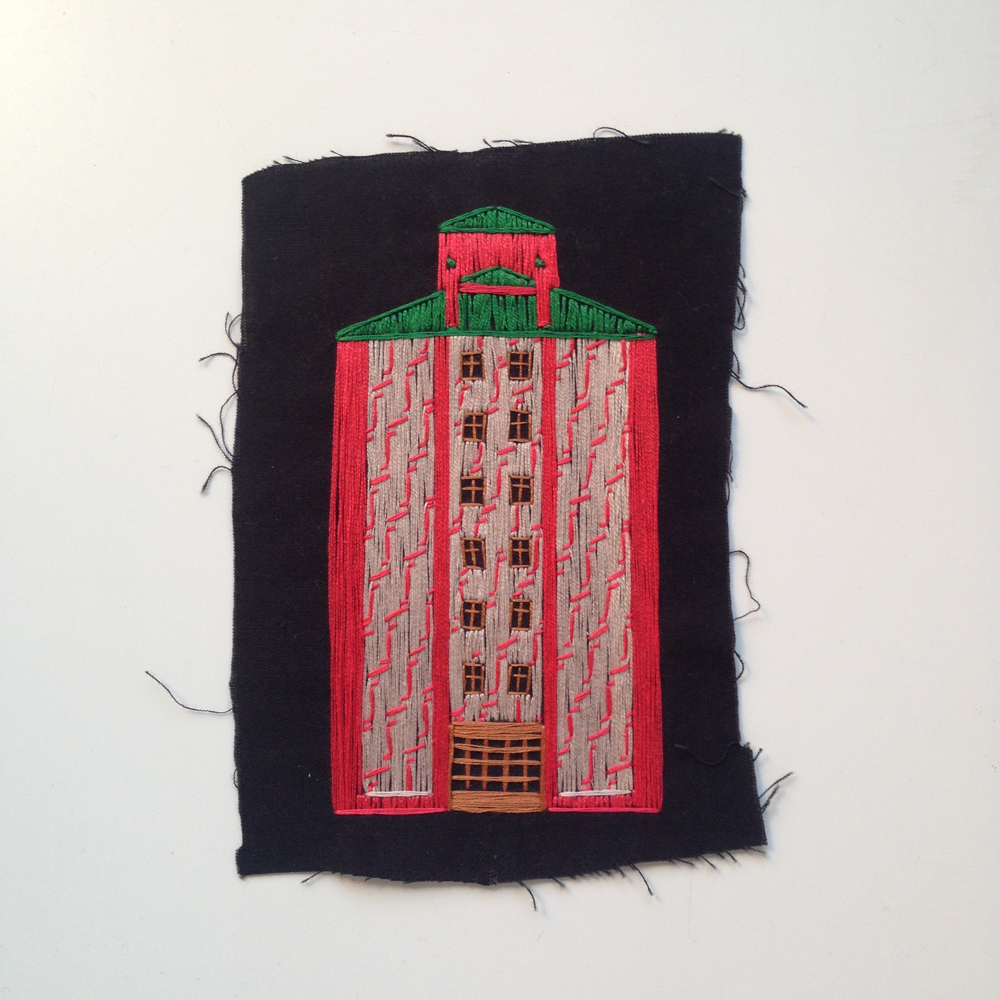
The House-Commune ‘The Paris Commune’, by O.A.Vutke. 1931-1933ss. Smolensk
Regional food you think we must try? okroshka
Favourite film There are a lot of such films. The five most important ones for me at the moment are:
Ivan’s Childhood (Andrei Tarkovsky), My Friend Ivan Lapshin (Aleksei German),
Akira (Katsuhiro Otomo), Love Actually (Richard Curtis), Porco Rosso (Hayao Miyazaki) etc
Fav book I really love Russian classical literature. especially such authors as F.M.Dostoevsky, I.S. Turgenev, A.P. Chekhov… I also like the books of Kobo Abe, James Joyce, Kafka, Virginia Wolf, Yasunari Kawabata, Yukio Mishima etc
Where in the world would you like to visit Many places! Japan, Great Britain, Chile, Uzbekistan. I would also like to travel more actively in Russia. I would still be happy to return to those places where I have already managed to visit: Hong Kong, Georgia, Cuba… but first on this list is Japan
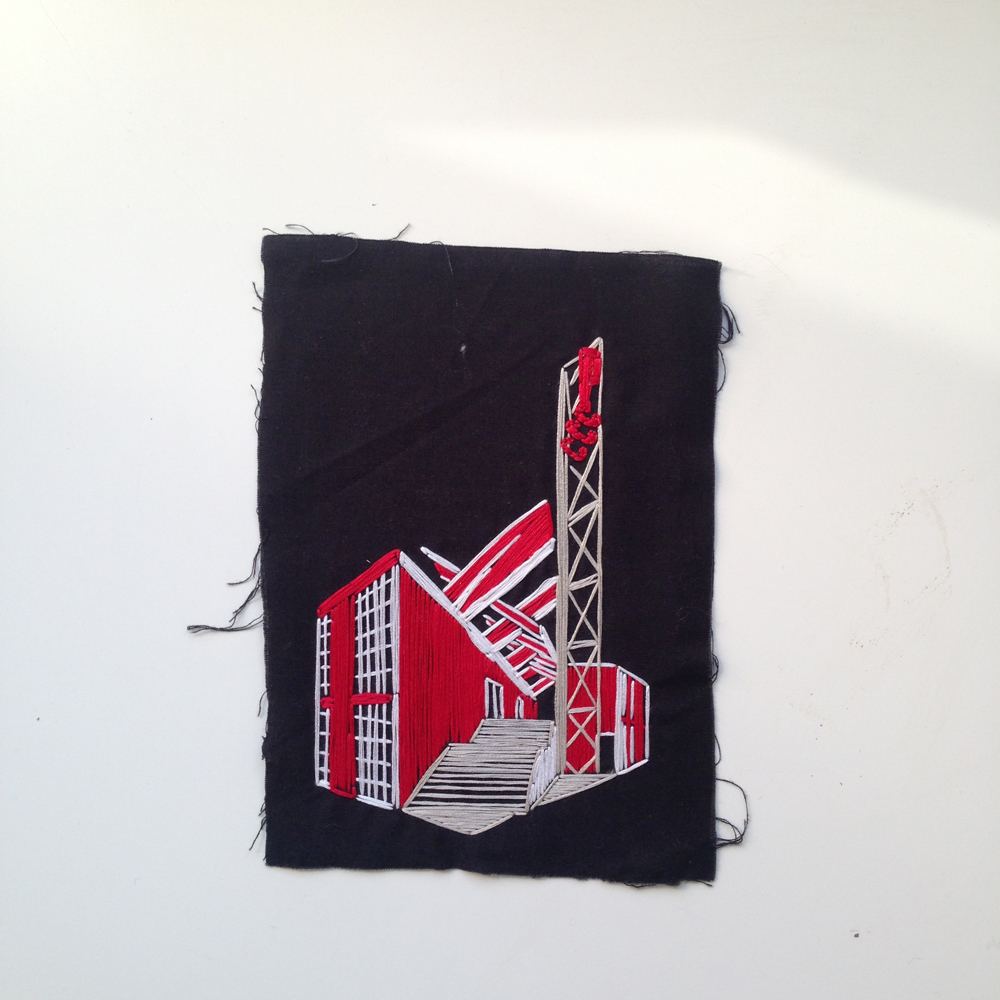
Pavilion of the Soviet Union, by Konstantin Melnikov (destroyed). 1925. Paris.
Finding Sasha
Instagram @sashabraulov
https://vk.com/sashabraulov
Facebook @sasha.braulov
If you would like to purchase one of the embroideries direct message Sasha and Factory52.
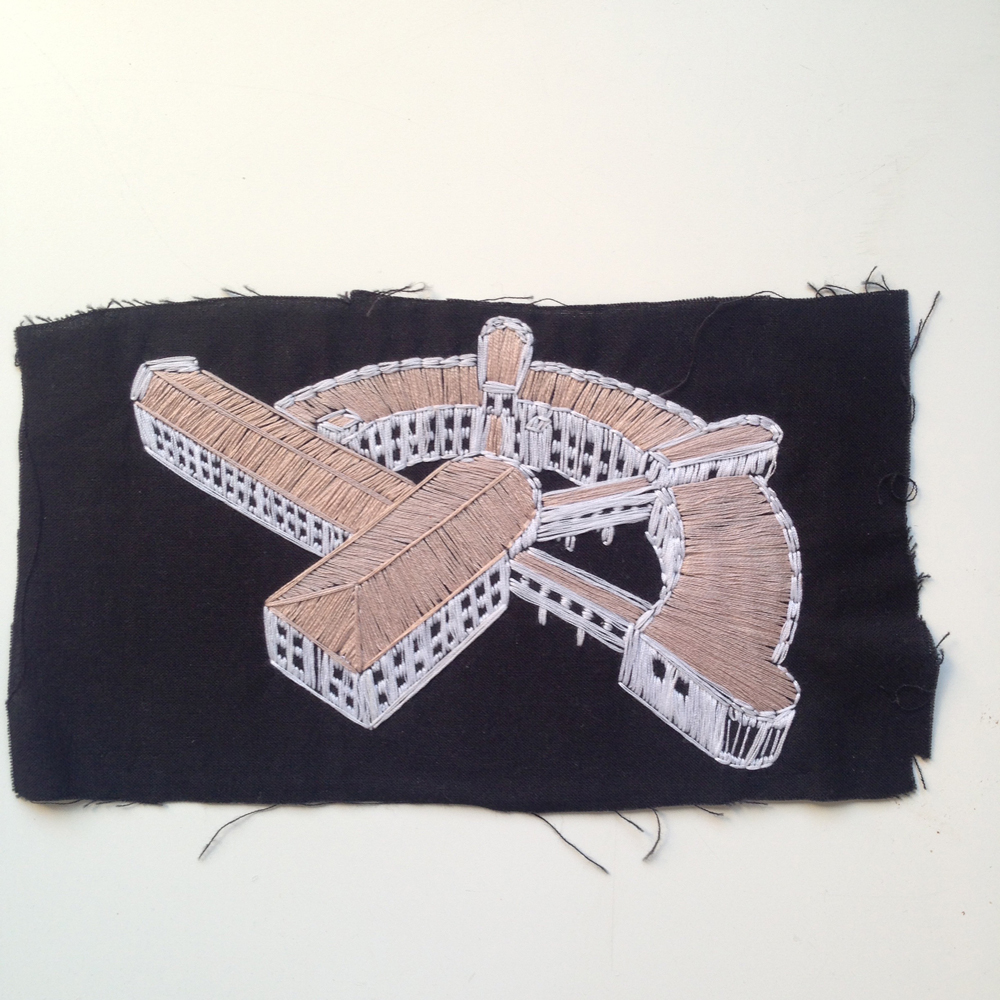
The Factory-Kitchen, by Eketerina Maksimova. 1931. Samara.




